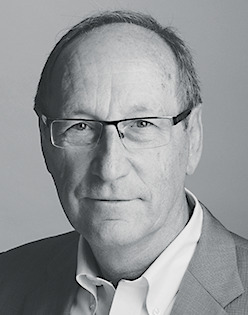
Since the beginning of the pandemic, we have heard stories of physicians who have been exclusively conducting telephone consultations without physically examining a single patient. Not a single physical examination since March 11, 2020! How do they do it? How are they able to evaluate complex problems like stomach aches, persistent pain, or fatigue, which can have a diverse range of causes? Are they requesting an unfathomable number of tests, are they systematically referring their patients to their colleagues, or are they simply sending them to the emergency department? We have also heard of those who call patients at night or on the weekends, when it is more lucrative.
There have also been reports that certain physicians avoid seeing patients who are too sick or too demanding, only bothering to renew their prescriptions or order a few tests here and there. How can they abandon patients with a high burden of illness and multiple comorbidities—cardiovascular, pulmonary, renal, oncologic—to float from specialist to specialist and from walk-in clinic to walk-in clinic? There have even been reports about some who work within the regulations by seeking the most lucrative bonuses.
We have also heard stories of patients leaving doctors’ offices feeling disgruntled after being charged exorbitant fees just to complete paperwork. It is true that paying $125 just to fill out the forms to renew your driver’s licence can seem excessive, even if the amount complies with current regulations.1 Especially for elderly persons living entirely off their old age pension, or a person with a disability who needs a medical certificate to use accessible transportation.
But surely this is just gossip!
Otherwise, one would understand regulatory bodies wanting to remind their members of their ethical obligations: “A physician must discharge [his or her] professional obligations with competence, integrity and loyalty.”2 Or wanting to remind them of the Hippocratic oath: “I will apply measures to the benefit of the sick, according to my abilities and judgement, and I will keep them from harm and injustice [translation].”3
Otherwise, one would understand insurance providers wanting to ensure that proper controls are in place; the health insurance board wanting to compare compensation paid to physicians practising in similar environments and with similar patient populations, inquiring about billing discrepancies and investigating as needed. One would understand them wanting to inform patients of any fees set by a family physician, as is currently done by the Régie de l’assurance maladie du Québec.
One would understand seniors’ associations considering launching class-action lawsuits against medical practices and physicians suspected of taking advantage of elderly people by imposing fees deemed to be unreasonable, and against the physician associations that established these practices.
But surely this is just gossip!
Otherwise, it would be well within our right to remind these individuals that they are behaving immaturely, thinking only of themselves and their personal interests; remind them that we are indeed privileged to be physicians; tell them that we have been given a great deal and that it is our duty to give back; tell them that, through their greed, they are destroying an extraordinary universal health care system to which everyone contributes and from which everyone benefits.
I would be sorely tempted to remind them of how they presented themselves during their medical school admissions interviews: candid, enthusiastic, tearful, claiming they wanted to save the world and humanity. Oh yes? What happened to those young women and men who wanted to change the world? What happened between the time they were admitted into medical school and when they began practising?
Thankfully, these individuals are few and far between. I am convinced that most physicians are professional, accountable, dedicated, even remarkable, and do not count their hours or their hard work. One need only consult data from the Programme d’aide aux médecins du Québec to realize how demanding this profession truly is. Almost a calling.
Let us not allow a few individuals who are failing their ethical obligations tarnish the reputation of family medicine. If they do not understand this, let them stop practising and go do an MBA instead.
Family medicine is not a business.
Footnotes
Cet article se trouve aussi en français à la page 397.
References
- 1.Fédération des médicins omnipracticiens du Québec . Provincial fees for non insured services, previously insured services and incidental fees provided by family physicians. Westmount, QC: Fédération des médicins omnipracticiens du Québec; 2020. Available from: https://fmoq.s3.amazonaws.com/pratique/facturation/frais-accessoires/Grille-tarifaire-FMOQ-6-11-2020_EN.pdf. Accessed 2021 May 7. [Google Scholar]
- 2.Collège des médecins du Québec . Code of ethics of physicians. Montreal, QC: Collège des médecins du Québec; 2015. Available from: https://www.cmq.org/publications-pdf/p-6-2015-01-07-en-code-de-deontologie-des-medecins.pdf. Accessed 2021 May 7. [Google Scholar]
- 3.Collège des médecins du Québec . Serment d’Hippocrate. Montreal, QC: Collège des médecins du Québec. Available from: http://www.cmq.org/publications-pdf/p-1-1999-12-01-fr-serment-hippocrate.pdf. Accessed 2021 May 7. [Google Scholar]


